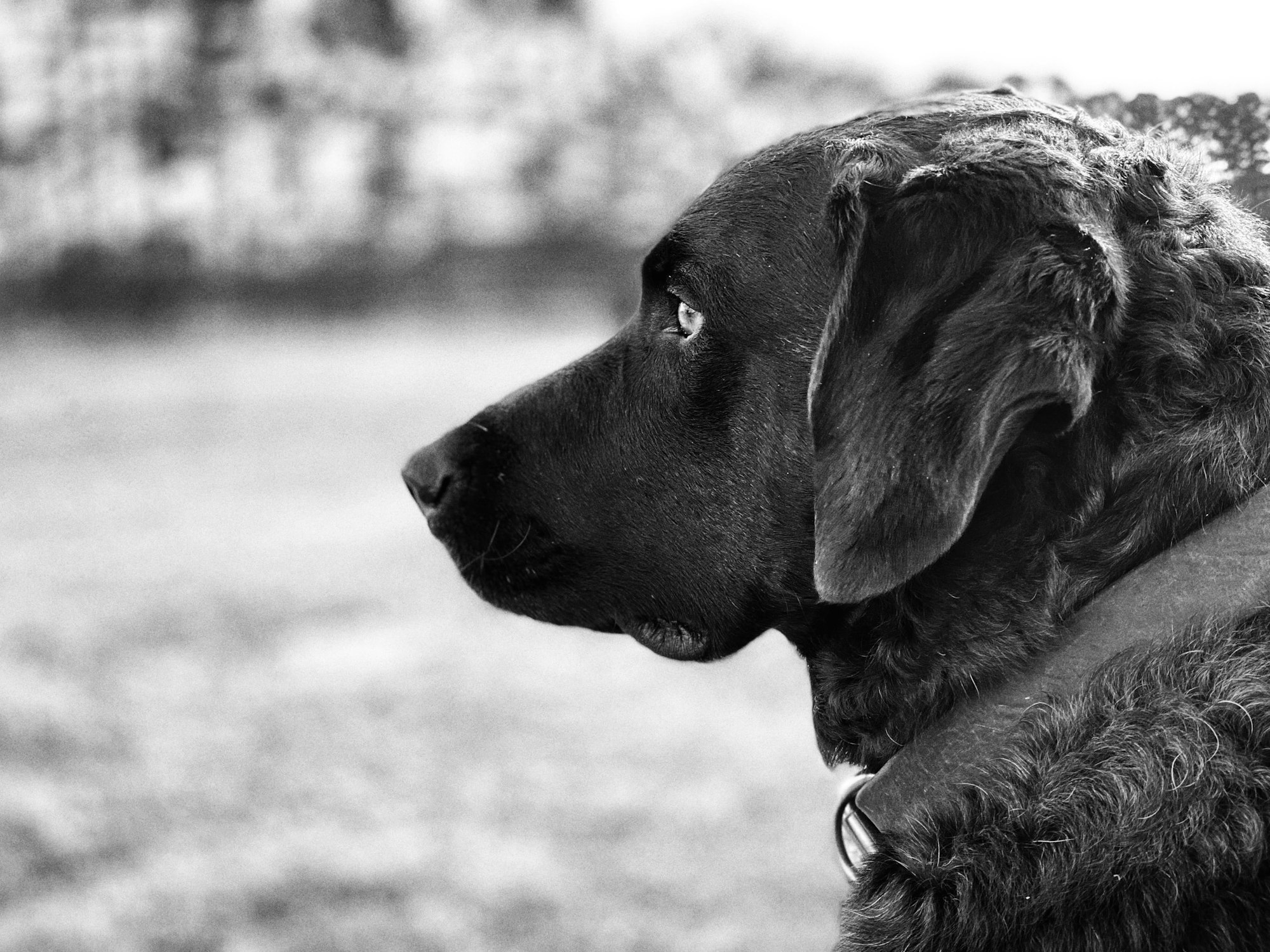The Complete Owner's Guide to Chesapeake Bay Retrievers is more than just a manual; it’s your go-to resource for everything about this remarkable breed. From their loyal and loving nature to their keen hunting skills, Chesapeake Bay Retrievers, or “Chessies” as they are often affectionately called, are truly unique companions. We'll explore their history, temperament, health, and much more, ensuring you have all the tools necessary to raise a happy and healthy Chessie.
The Fascinating History of the Chesapeake Bay Retriever
A tale as rich as the breed itself, the history of the Chesapeake Bay Retriever is one of resilience and transformation. Originating from the rugged shores of the Chesapeake Bay, these dogs were bred to retrieve waterfowl in the most challenging conditions, making them both strong and resourceful. They are the result of careful breeding, and their lineage includes an interesting blend of Newfoundlands, Irish Water Spaniels, and other retrievers.
Understanding the Chessie's Unique Temperament
Loyal, intelligent, and eager to please, a Chesapeake Bay Retriever is not your average family dog. These pups have a serious work ethic and excel in both family life and more disciplined environments, such as hunting or agility courses. But don’t be fooled by their working dog demeanor; Chessies are known for their deep affection towards their families.
Health and Nutrition: A Vital Component
Caring for your Chessie’s health is a cornerstone of responsible ownership. Their diet should be filled with high-quality protein and healthy fats, with limited fillers or artificial ingredients. One element to consider is dog probiotics. These supplements can support a healthy gut and boost the immune system of your Chesapeake Bay Retriever, ensuring they have all the energy they need to play and work.
Grooming Your Chesapeake Bay Retriever
Their dense, waterproof coat is both a blessing and a challenge. Regular grooming is essential, and during shedding season, be prepared for a lot of fur! Their coat’s oils keep them insulated in cold water but can become smelly if not cleaned regularly. And don’t forget about those paws—they are webbed for a reason!
Exercise and Training: A Balanced Approach
While they love to work, Chesapeake Bay Retrievers are also prone to overexertion and heat exhaustion. Balance is key, as is finding the right activities that allow them to burn energy without risking their health. Regular walks, playtime, and mental stimulation through training are paramount for this intelligent breed.
Sleeping Patterns and Melatonin for Dogs
Chesapeake Bay Retrievers, like any other dogs, need their rest. If your Chessie struggles with restlessness or anxiety, melatonin for dogs can be a safe supplement to consider, under vet guidance. It can help them to calm down and sleep through the night, especially during stressful situations like thunderstorms or fireworks.
The Handy Tools: Pill Pockets for Dogs and Dew Claws
Administering medication can be a challenge, but pill pockets for dogs make it a breeze. They are flavored treats that hold the medicine, masking its taste and making your dog eager to take their meds. Speaking of health, ever noticed those little claws higher up on your Chessie’s legs? Those are dew claws, and they serve a purpose!

Protecting Your Chessie from Flea Bites on Dogs
No owner wants to see their beloved Chessie suffer from flea bites on dogs. A comprehensive plan for flea and tick prevention is a must for every responsible pet owner. Regular check-ups and preventative treatments can keep your dog safe and comfortable.
The Future of Canine Care: Dogs Stem Cell Therapy
As veterinary medicine advances, so do the options for treating our furry friends. One emerging treatment to watch? Dogs stem cell therapy, which is showing promise for a variety of canine health issues. It’s a cutting-edge field, and while it’s not right for every dog, it’s an exciting development for the world of veterinary medicine.
Socialization and Behavior Training
When it comes to Chesapeake Bay Retrievers, early socialization is crucial. Picture this: It's a sunny Saturday morning, and you're at the local dog park with your Chessie, Charlie. Instead of feeling tense and worried about how he’ll react to other dogs, you're relaxed and at ease. Why? Because you've put the time into socializing him from a young age. Socialization helps your Chessie learn about the world in a safe and controlled way, and it sets the tone for positive interactions with other dogs and humans throughout their life.
What to Feed Your Chessie: Beyond the Basics
Just like with humans, a Chessie’s diet is foundational to its health. But how do you navigate the world of dog food, with its endless options and confusing labels? The answer isn't one-size-fits-all. Whether you opt for kibble, raw, or a mix, the key is balance and quality. Your Chessie's vibrant, shiny coat isn't just a sign of good grooming—it starts with what they eat. And don’t forget those special treats—pill pockets for dogs are a godsend when it’s time for medication. They mask the taste of the pill and turn medicine time into treat time.

Avoiding Common Health Problems
Chesapeake Bay Retrievers are generally healthy, but they’re prone to certain conditions, just like any breed. One minute you're enjoying a weekend hike with your Chessie, the next you're at the vet’s office, discussing treatment options for a sudden lameness. This could be an unfortunate introduction to the world of dog joint issues, which Chessies can be prone to. Regular check-ups, a proper diet, regular exercise, and innovative treatments, such as dogs stem cell therapy, can be part of a proactive approach to your Chessie’s long-term health.
Grooming: More Than Just a Pretty Face
Grooming your Chessie isn’t just about keeping them looking good; it’s a key part of their overall health. Picture this: As you're brushing your Chessie after a day at the lake, you notice a small, irritated patch of skin that wasn’t there before. This is where regular grooming becomes more than just a beauty routine – it’s a health check. It's your chance to check for everything from flea bites on dogs to unusual lumps or bumps.
The Unsung Hero: The Dew Claws
Ever wondered about those seemingly extra claws on your Chessie's legs? Those are dew claws, and they are more than just a quirky physical trait. They give your dog more control over their legs and are particularly useful for gripping things like bones or toys. In some dogs, they even provide additional traction when running.
Preparing for Golden Years: Senior Care for Your Chessie
As your Chessie ages, their needs will change. It’s a bittersweet time; your once vibrant and energetic puppy is slowing down, and you want to make their golden years as comfortable as possible. This might involve adjusting their diet, increasing vet check-ups, and possibly introducing supplements, like joint support or even dogs stem cell therapy for certain conditions.
Dealing with Anxiety: Can Melatonin Help?
Dogs, just like people, can experience anxiety. Picture this: A loud thunderstorm is rattling your windows, and your Chessie, who was once calm, is now panting heavily and pacing around the house. This is where a solution like melatonin for dogs might come into the conversation.
Melatonin, a natural hormone that helps to regulate sleep, has been found to have a calming effect on dogs when used properly. Of course, it's important to consult with a veterinarian before giving your dog melatonin or any other supplement. Your vet can provide guidance on whether melatonin is a good fit for your Chessie and, if so, recommend an appropriate dose.

The Coat: Not Just for Looks
One of the Chesapeake Bay Retriever's most distinctive features is its dense, waterproof coat. This double coat, which is usually short and wavy, serves a vital function. It's not just for aesthetics; it's a built-in drysuit, designed by nature to keep your Chessie warm and dry even when they are retrieving in cold water. Regular grooming is essential to keep this coat in top shape, preventing potential skin issues and reducing shedding around your home.
Play and Training: The Chessie Way
Now imagine a bright Sunday morning; you’re out in the yard, playing fetch with your Chessie. They have a look in their eyes that says, "I could do this all day!" And truthfully, they probably could. Chesapeake Bay Retrievers are renowned for their love of retrieving, which is not just a game but a deeply ingrained part of who they are. This love of retrieving can be channeled into training, turning playtime into an opportunity to reinforce good behaviors.
Health From Within: The Promise of Stem Cell Therapy
As science advances, so does veterinary medicine. Imagine a future where your aging Chessie, once slowed by arthritis, can run and play like a puppy again. This is the promise of dogs stem cell therapy. This treatment uses a dog’s own cells to help regenerate damaged or aging tissues. It’s an exciting, albeit complex, field of study, and it's making headway as a treatment for a range of canine health issues.
Preventing Unwanted Guests: Ticks and Fleas
Picture this: after a fun day hiking through the woods, you spot something on your Chessie’s coat - a dreaded flea. Preventing flea bites on dogs starts with regular, preventative care. From oral medications to topical treatments and collars, there are a variety of options available to help keep these pests at bay. The key is to consult with your vet and find the solution that’s right for your Chessie.
Monitoring Your Chessie’s Activity with FI Dog Collars
Imagine this: it's mid-afternoon, and while you’re at work, you’re curious about what your Chesapeake Bay Retriever, Rex, is up to. With an FI dog collar, you can check in on him right from your phone. These smart collars track your dog's activity levels throughout the day, allowing you to see if he's been resting, playing, or getting in his daily exercise. For an energetic and intelligent breed like the Chessie, staying active is key to their physical and mental well-being. The FI collar lets you ensure they're getting enough exercise, even when you're not at home.
Locating a Lost Chessie: The Role of FI Collars
Picture your worst nightmare: your Chessie, who loves to explore, has found a way out of the yard and is nowhere to be found. Enter the FI dog collar. This smart collar uses GPS technology to track your dog’s location in real time, drastically increasing the chances of a quick and safe return. For a breed with a natural love for water and wide-open spaces, the FI collar provides Chesapeake Bay Retriever owners with peace of mind, knowing that their adventurous companion is always within reach.
Keeping Your Chessie Healthy with Data
Just as you track your steps and activity with a smartwatch, your Chessie’s FI collar is doing the same for them. Imagine getting a notification that your usually active Chessie has been unusually sedentary for the past couple of days. This could be an early sign of a health issue, like a joint problem or an upset stomach from those new dog probiotics you're trying. With data from the FI collar, you can spot potential health issues before they become serious problems and share this information with your vet, facilitating more informed and effective care.
Grooming and FI Collars: A Perfect Pair
While grooming your Chessie, you notice that their FI collar is a little dirty from all their recent adventures. Not to worry — the FI dog collars are built to be durable and water-resistant, a perfect match for a breed that loves to swim and retrieve. While you’re brushing out your Chessie’s coat and checking for signs of flea bites on dogs, you can also give their FI collar a quick wipe down. It’s a small step that ensures the collar stays in top working condition, just like your grooming routine ensures your Chessie stays in top physical condition.
Conclusion:
Owning a Chesapeake Bay Retriever is a rewarding and fulfilling experience. From early socialization and proper training to ensuring a balanced diet—with handy tools like pill pockets for dogs—every aspect matters. Regular grooming is essential, not just for their stunning coat, but as a health check, allowing you to spot issues like flea bites early on.
As they age, options like stem cell therapy might arise, showcasing the blend of tradition and innovation in caring for these dogs. The modern FI dog collar is a standout tool, offering real-time location tracking and vital health data insights, seamlessly blending with the Chesapeake Bay Retriever’s active and adventurous lifestyle. It's more than owning a pet; it’s a lifelong journey with a devoted companion.




